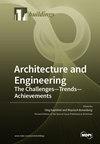Key Drivers for BIM-Enabled Materials Management: Insights for a Sustainable Environment
IF 3.1
3区 工程技术
Q2 CONSTRUCTION & BUILDING TECHNOLOGY
引用次数: 0
Abstract
The value of Building Information Modelling (BIM) is widely discussed within all construction stages including the data-driven culture across building processes and sustainable impact in the long term. Yet, there is a need to explore the opportunities of BIM in improving construction materials management (CMM) as a core function of supply chain management. Due to the dearth of studies on BIM potential in improving CMM within the sustainability context, the authors examine the effectiveness and efficiency of BIM-enabled materials management, via three data streams: a literature review, an online survey, and interviews with subject matter experts in the field. This study aims to explore the drivers of BIM-enabled sustainable construction materials management. This is the preliminary study designed to test the initial hypotheses based on an online questionnaire application to derive tacit knowledge from industry and academic experts, followed by short interviews with respondents. Grounded in the comprehensive literature review, 24 indicators were defined for survey purposes. Preliminarily, 206 experts from 10 countries responded to the survey. The results show significant differences in the ranking of the indicators among the five factors. In developing countries, among two groups, industry sample awareness scales demonstrated lower understanding than among academic experts. Another finding relates to the significant agreement in scaling the importance of opportunities among industrial and academic sector experts. The research adds knowledge to deepen the understanding of opportunities of BIM-enabled materials management as a part of building project sustainable performance for industry policy and decision-makers. It also brings attention to the lack of sustainability awareness amongst industry experts in developing countries. Although materials constitute a solid part of any construction project cost, there is still a collaboration gap among designers, materials management, and, more broadly, supply chain management experts.BIM 化材料管理的关键驱动因素:可持续环境的启示
建筑信息模型(BIM)的价值在所有施工阶段都得到了广泛讨论,包括整个建筑流程的数据驱动文化和长期的可持续影响。然而,作为供应链管理的核心功能,BIM 在改善建筑材料管理 (CMM) 方面的机遇仍有待探索。由于缺乏对 BIM 在可持续发展背景下改善 CMM 的潜力的研究,作者通过文献综述、在线调查和与该领域主题专家的访谈这三个数据流,研究了 BIM 支持的材料管理的有效性和效率。本研究旨在探索 BIM 支持的可持续建筑材料管理的驱动因素。这是一项初步研究,旨在通过在线问卷调查从行业和学术专家那里获取隐性知识,然后与受访者进行简短访谈,从而检验初步假设。以全面的文献综述为基础,为调查目的定义了 24 项指标。初步统计,共有来自 10 个国家的 206 位专家参与了调查。结果表明,在五个因素中,指标的排序存在明显差异。在发展中国家的两组专家中,行业样本认知量表的理解程度低于学术专家。另一项发现涉及工业界和学术界专家在机会重要性的比例上存在显著一致。这项研究为行业政策和决策者提供了新的知识,加深了他们对作为建筑项目可持续绩效一部分的 BIM 化材料管理机遇的理解。它还使人们注意到发展中国家的行业专家缺乏可持续发展意识。虽然材料在任何建筑项目成本中都占很大比重,但设计师、材料管理专家以及更广泛意义上的供应链管理专家之间仍存在合作差距。
本文章由计算机程序翻译,如有差异,请以英文原文为准。
求助全文
约1分钟内获得全文
求助全文
来源期刊

Buildings
Multiple-
CiteScore
3.40
自引率
26.30%
发文量
1883
审稿时长
11 weeks
期刊介绍:
BUILDINGS content is primarily staff-written and submitted information is evaluated by the editors for its value to the audience. Such information may be used in articles with appropriate attribution to the source. The editorial staff considers information on the following topics: -Issues directed at building owners and facility managers in North America -Issues relevant to existing buildings, including retrofits, maintenance and modernization -Solution-based content, such as tips and tricks -New construction but only with an eye to issues involving maintenance and operation We generally do not review the following topics because these are not relevant to our readers: -Information on the residential market with the exception of multifamily buildings -International news unrelated to the North American market -Real estate market updates or construction updates
 求助内容:
求助内容: 应助结果提醒方式:
应助结果提醒方式:


